Tech
Top 10 Point of Sales Used By Restaurants
Published
5 years agoon
By
Dan Wesson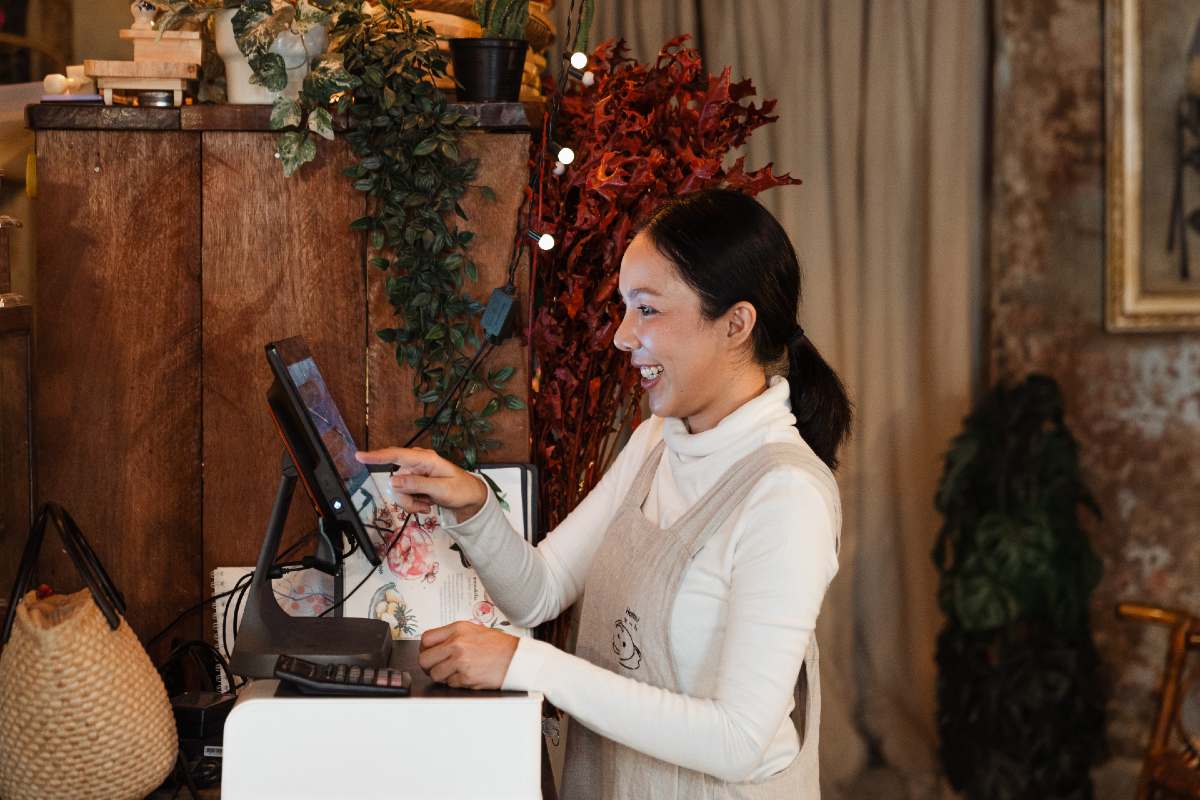
Restaurants rely on a point of sale (POS) system to track orders and sales. Besides that, it boosts revenues by increasing their turn times. This enables them to get more orders and accommodate more customers. That’s why restaurants need a robust system to manage these and more. So, in this article, know the top 10 best restaurant POS systems.
1. Toast

One of the most highly recommended and trusted POS systems by most restaurants is Toast. Its ease of use is reason alone to subscribe to the service without hesitation. Aside from that, you also get access to their cloud-based system, where you can use the POS anywhere.
Features included are:
- Tableside service
- Analytics & reporting
- Menu management
They have three available plans for restaurants of all sizes. The Starter Plan costs $69/mo. This plan is suitable for small restaurants and cafés and food trucks. Meanwhile, the Enterprise Plan is at $99/mo, with added online ordering and delivery features. Last but not least is the Growth Plan, which includes gift cards, marketing, and loyalty systems priced at $189/mo.
However, that’s only for the software and license. For the full Toast experience, you can also buy their hardware starting at $799.
2. TouchBistro
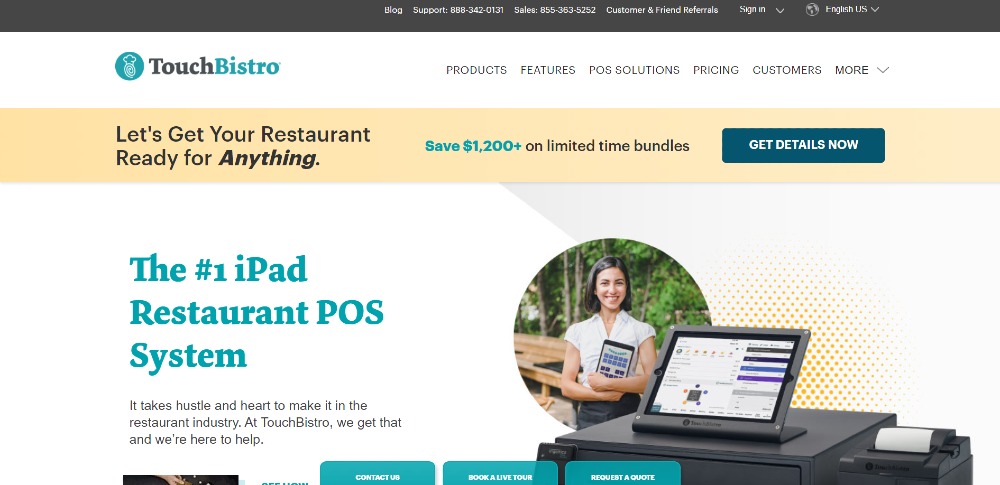
Hardware can become expensive. But TouchBistro uses an iPad POS system, making it much more affordable for restaurants to use. Aside from that, they even tapped former restaurant experts to guide them in creating the software. That’s why many consider TouchBistro as one with the best restaurant POS systems.
One of the advantages of having an iPad POS system is its portability. This means anyone in the restaurant can use the system without having to go back and forth. They even equipped their POS system with payments making it easier for staff to process payments. Aside from that, it also has a staff management and scheduling feature so you can monitor your staff’s performance and labor costs.
Their plan starts at $69/mo. But you can have different add-ons like Reservations ($229/mo), Online Ordering ($50/mo), and Gift Cards ($25/mo).
3. Loyverse
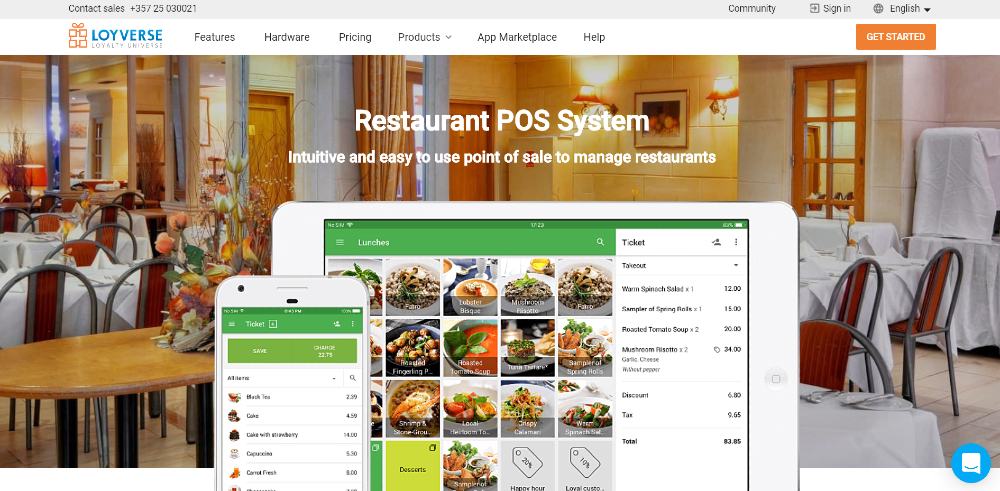
If you’re looking for an affordable restaurant POS system, Loyverse is your answer. For one, their POS system is for Free. Yes, you read that right. It’s free.
This is ideal for those who have yet to start their restaurant and don’t have that much to spare. All you have to do is download the software, and you have Loyverse installed for your restaurant. Its features include an order management system where you can handle tickets (orders), customize your sales dashboard, and process new orders immediately to the kitchen.
Even if they may not offer most of the functions as the paid POS systems, it’s valuable and worthwhile. And that’s why many consider Loyverse as one of the best restaurant POS systems.
But, if you want to level up your Loyverse POS, you can subscribe to their two add-ons:
- Employee management ($5/mo)
- Advanced inventory ($25/mo)
4. Square for Restaurants

The Square for Restaurants POS system is perfect for all types of restaurants. Whether you manage different models all at once, you can consider Square as your all-around POS provider.
Its basic features include a menu, order, table management, reporting and analytics, and discount information. Aside from that, you can integrate this to your Square online site and other software applications like Postmates, Intuit Quickbooks, and even TouchBistro.
Like the Loyverse, you can use Square for free. However, if you need other features and functions, you can subscribe to Pro for $60/mo. If there’s a need to elevate your POS system further, you can customize your plan with extra add-ons.
5. Lightspeed
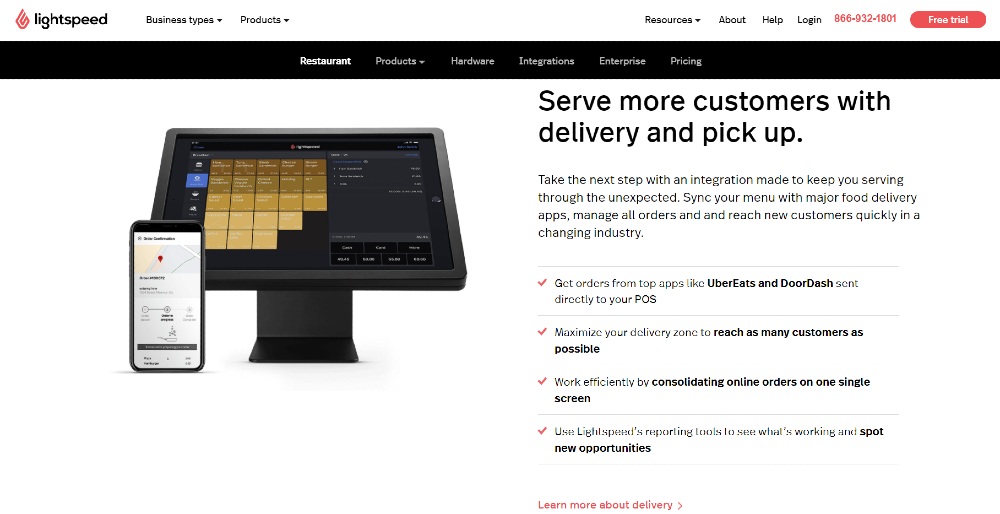
For those in need of a contactless POS system, Lightspeed can become your restaurant’s system. For one, they’ve adapted to the “new normal” and ensured contactless payments, widened delivery functionality, and adjusted table management for social distancing. Plus, you can even earn more revenue by using their eCommerce platform.
Besides that, you can also use Lightspeed for all your restaurant’s branches or other locations, generate reports, and increase staff productivity.
If you choose Lightspeed as your POS provider, you’ll have to pay $69/mo. Plus, if you’re sticking to Lightspeed and maximize your usage of their software, you can purchase add-ons for either $12/mo or $39/mo (Premium).
6. Upserve
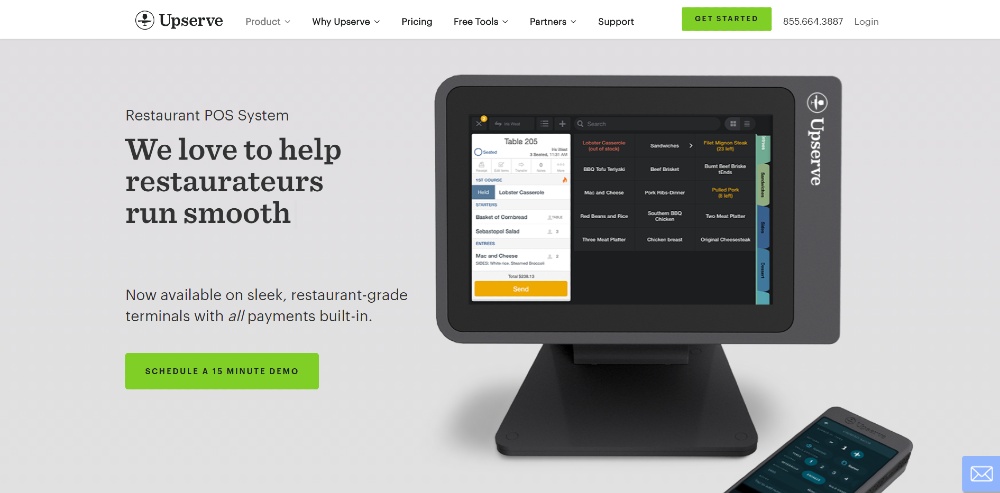
Have you ever tried a POS system before and experienced downtimes? With Upserve, they say you won’t ever run into that problem any longer. Besides that, you can use it to split checks. It’s great when you have big parties with people fighting over who gets to pay the check, then end up paying for themselves. It has a training mode, allowing trainees to learn the system quickly. Plus, it has menu management and restaurant analytics too!
Upserve also has a dedicated app where you can access your POS system anywhere. That and its other features are the reasons why it’s one of the best restaurant POS systems ever.
As for pricing, you can get started with their Core subscription for only $59/mo. If the Core subscription doesn’t do it for you, you can upgrade to their Pro subscription for $199/mo or the Pro Plus for $359/mo.
7. Cake

Customization and ease of use are two of the reasons why many restaurateurs use Cake. Everyone in your team can definitely appreciate its intuitiveness too.
Aside from that, they also have cloud storage, reporting and analytics function, and even offline mode. You can also connect Cake to other applications you’re using, such as PayPal, Shogo, and ChefTab.
A Cake subscription is $69/mo. But you can upgrade your POS system by adding a Guest Manager add-on too. A monthly subscription costs $79/mo.
8. ShopKeep
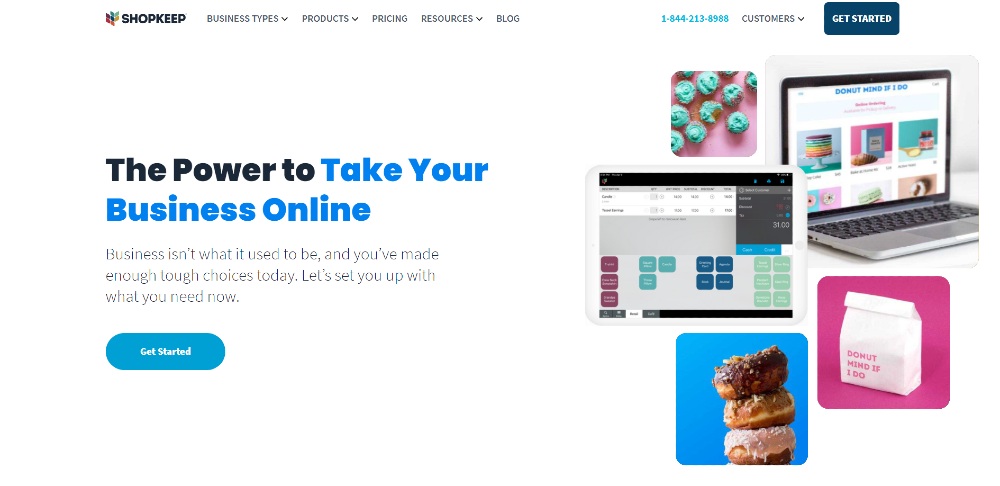
If you need more options for an iPad POS, Shopkeep is right up there with TouchBistro. Aside from the basic features of managing orders, menu, and the staff, you can also integrate your accounting on the software.
Don’t forget to download the ShopKeep app, so that you can access all information about staff, labor costs, and sales. Plus, you can get notifications when you’re low on stock or payouts. It’s one of the reasons many consider them as one of the best restaurant POS providers.
Shopkeep has three plans available, but they’re flexible in terms of what you need. They have the Basic plan for $69/mo. Then, if you need eCommerce and online ordering, get the Essential plan for $99/mo. However, if you need marketing tools and register licenses, get the Advanced one for $199/mo.
9. Revel

You can also depend on Revel as another option for an iPad POS system. It has tableside and table management capabilities. Plus, when you use Revel, you’ll also monitor your employee’s performance and progress. You can even guide them to upsell items to customers.
Apart from those, Revel has its own payment solution, the Revel Advantage. You’ll no longer need to spend time trying to gather all your payment processing needs. Revel can do that while you manage your restaurant.
Revel simplifies its pricing, as there’s only one plan. You’ll pay a flat monthly fee of $99/mo for the software.
10. Rezku
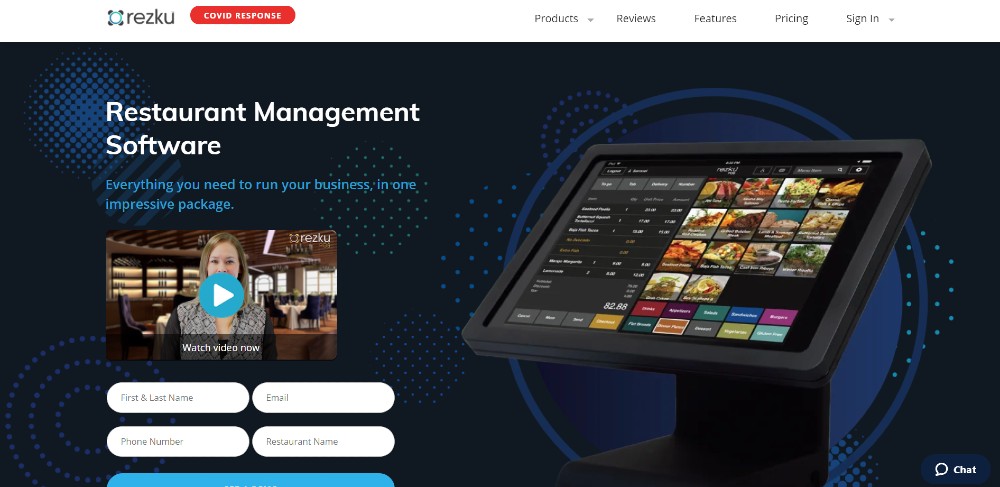
Unlike most POS providers, Rezku has a 2-in-1 system. You can easily convert your counter service to a mobile one. Not many POS providers offer this.
Like some on this list, Rezku has also adapted to the “new normal” by adding online ordering and delivery to its list of features. Besides this, you don’t have to pay extra for loyalty and gift card add-ons since they integrated that feature into their affordable plan.
Like Revel, you can pay a monthly fee of $79/mo for their software. But, if you’re an enterprise, you can ask for a quote.
For more franchise related information, you can check out other resources here at Franchise How!
You may like
Insider Interviews
Insider Interviews: Joseph Tota CEO and Founder of Tapville
Published
4 years agoon
December 30, 2020By
Peter Bolic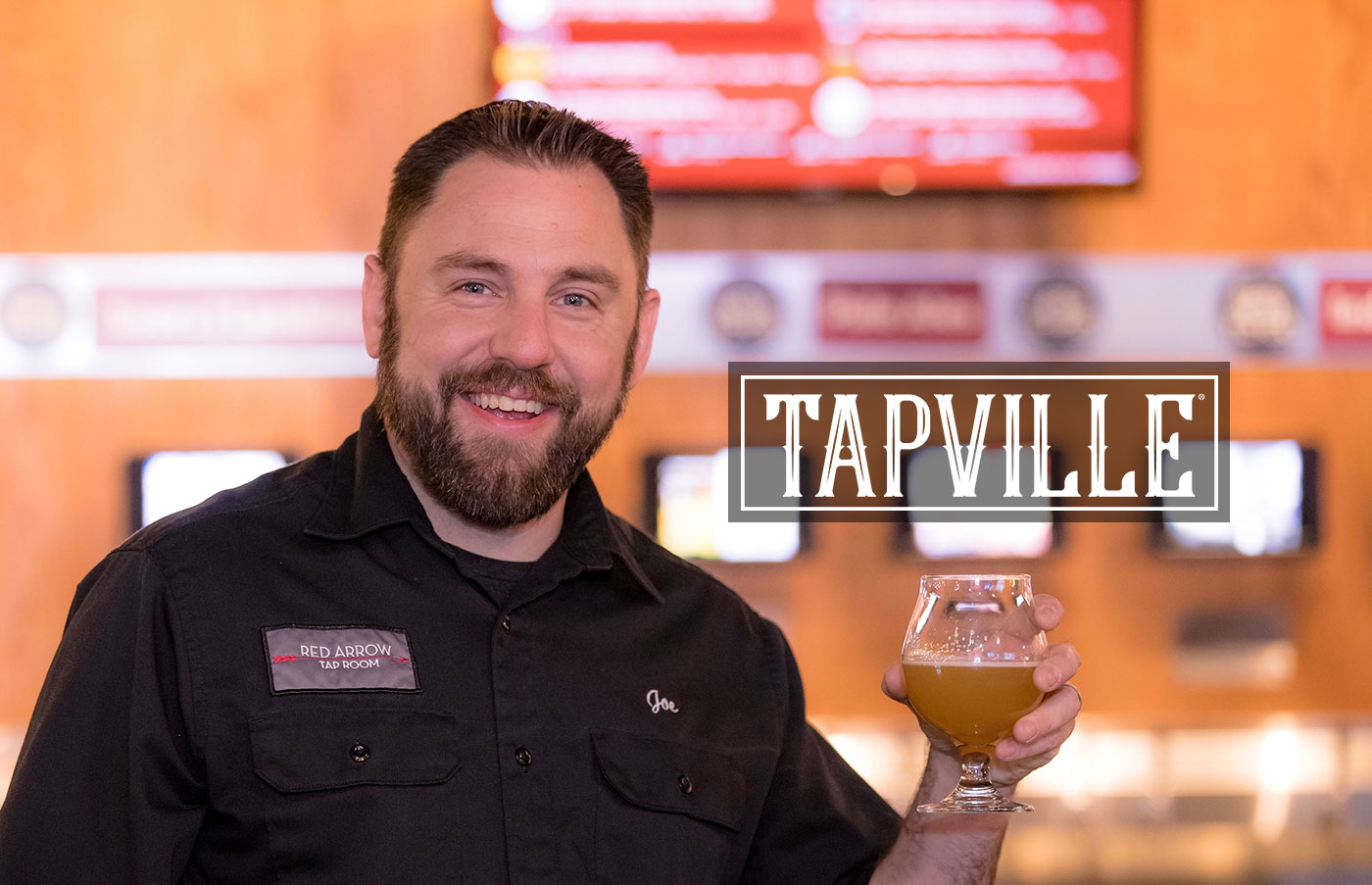
Tapville is the first fully self-pour and self-service concept to go to market. It’s a tech company cleverly disguised as a simple beer-pouring mechanism. Its CEO and founder, Joseph Tota, started programming back in the ’80s on a Commodore 64 that barely had 64 bytes of memory. His passion for technology led him to start his consulting firm, JBT Consulting Group. He sold that firm in 2011 and moved onto his next big venture, Tapville.
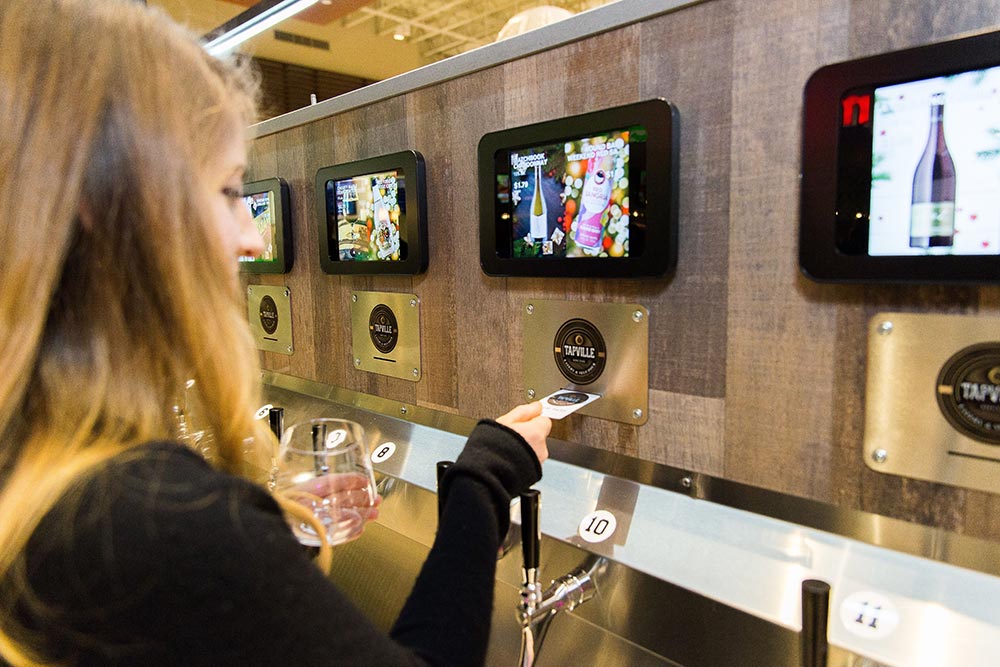
Peter: Can you tell us about your concept launch? How did you initially formulate the idea for the Tapville Social concept?
Joseph Tota: Before being in the business, I was a consultant. I worked for larger brands such as McDonalds and Buffalo Wild Wings, making these problems appear more obvious for me. Nobody likes to wait for a beverage at restaurants. We noticed that and set out to solve that problem. Our kiosks collect a lot of data that’s useful for the restaurant owners and us.
We have data ranging from how much customers are pouring, which products are frequently ordered together, proximity detection, the busiest time of day/week, and more. Brick & mortar restaurants centered around self-service. We built the world’s first mobile taproom, and we’re looking to deploy it in malls and airports.
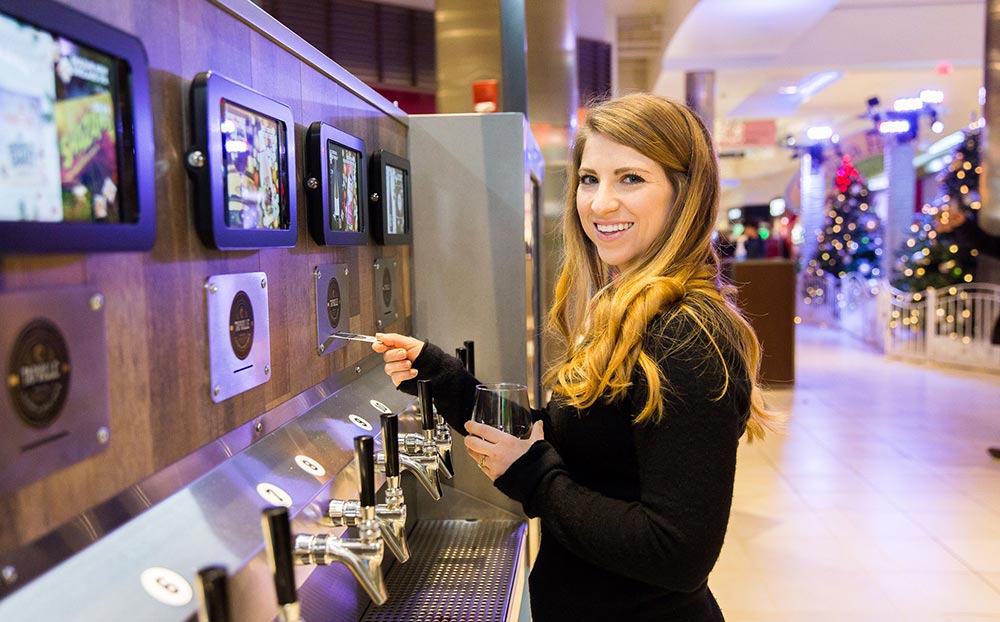
Have you made any pivots from your initial concept?
We have, yes. We originally started as a brick & mortar restaurant. Shortly afterward, we found out that we were good at the technology piece, so we moved towards building a “Kiosk” concept in malls. Then we moved to a mobile concept. Now we’re working on a new product called “Tap Wall.” It’s a self-pour tap with refrigeration built-in.
How difficult (or easy) were those changes to make?
We were good with technology, so the change wasn’t difficult. When we pivot, we just changed our model based on what we’re good at: technology, self-service, and self-pour. The pandemic ended up helping us instead of hurting.
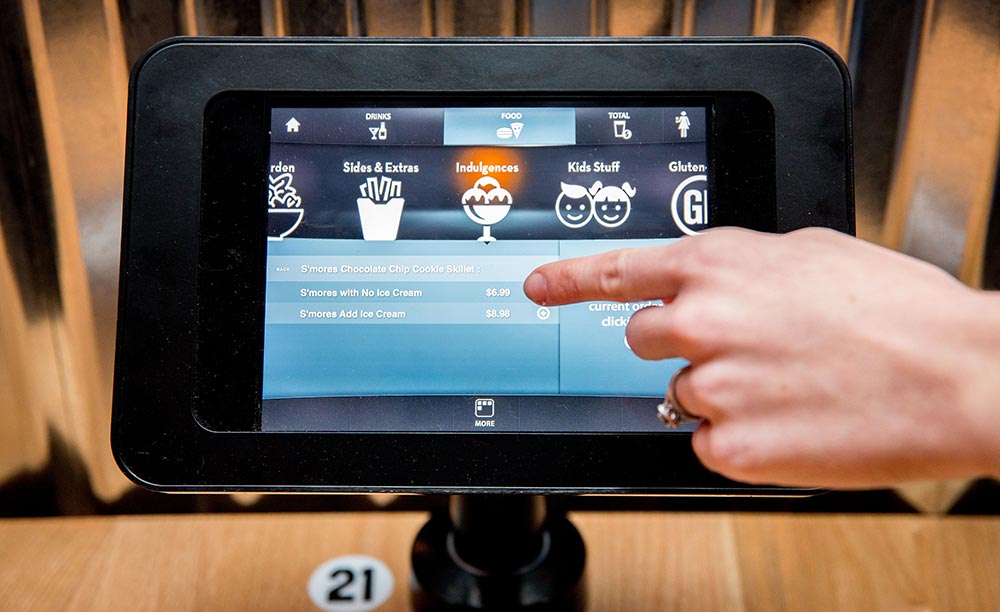
What benefits does the Tapville model offer in the era of social distancing?
All orders can be done via a mobile device or tablet at the table. So you’re socially distanced from staff. All beverages are self-pour, so there’s no need to interact with the staff. We’re offering a genuinely touch-less experience that lets the customer have control over the pour themselves. We also have a mobile app for customers. So they can order directly from their phone or on one of the self-ordering devices at their table.
Tapville seems like a tech-forward franchise. How do you leverage technology, and how does that impact franchisees?
We’ve taken sophisticated technology and made it easy for Franchisees to utilize that. We make it easy for you to run your business without needing to know how all the behind-the-scenes stuff work.
Do you have any patents? Is it difficult for others to copy your concept?
Where we differentiate is the tech stacks that we built, which create the optimal tool-sets for businesses. Anyone can buy a point of sale system, but it doesn’t mean they’ll be McDonald’s or Starbucks. We’ve been doing this for five years now. It’s cool stuff. If you come into our establishment and love IPA, we can send you specific marketing for your preferences. We’re able to market to customer’s preferences.
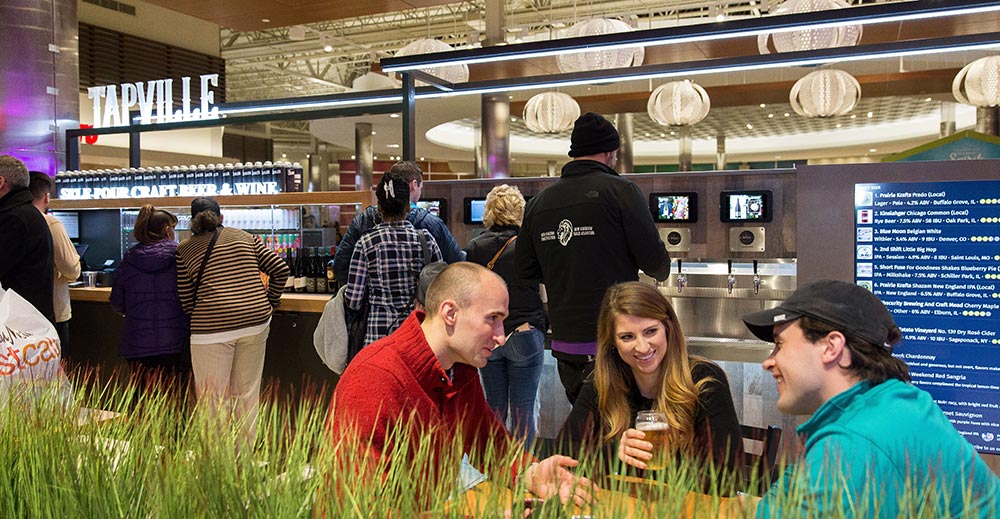
What has your growth been like in the past five years?
We started with our first location in Elmer’s, Illinois, in 2016. We opened our 2nd location in 2018 in Naperville, Illinois. About a year ago, we started franchising after we got the business model down.
At what point did you feel Franchising made sense?
I help franchise companies make operations manuals, training programs, and assets. So I’m very familiar with the concept of franchising. We had hundreds of inquiries from people asking to franchise our concept. It just made sense for this to be the next step for us.
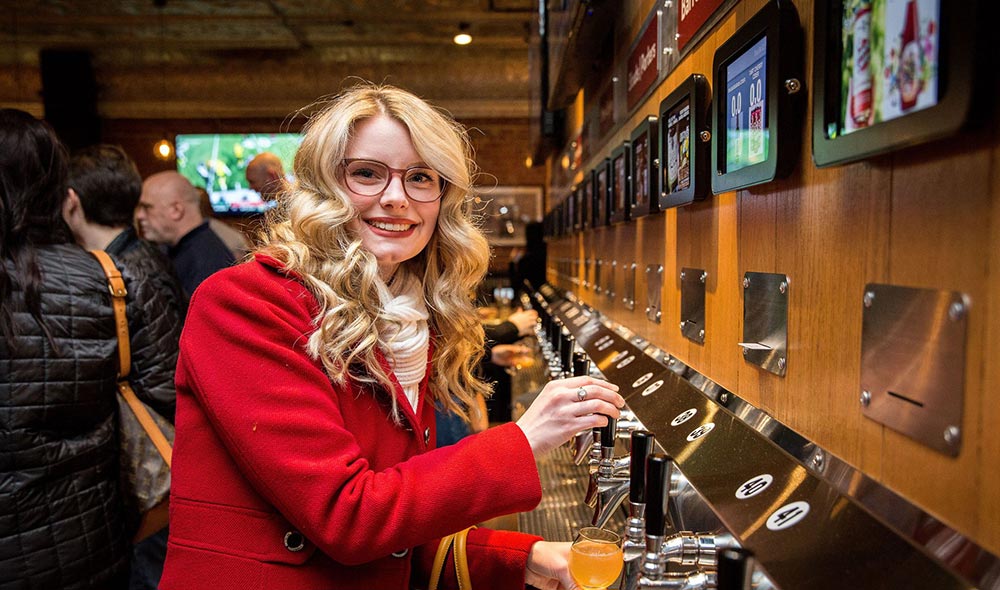
In your experience, what separates successful technology incorporation from failed incorporation?
There’s a lot of great techs out there. The ability to break it down, making it easy to understand, and ensuring it’s easy to use by the end-user is the key. It’s pointless to build great technology that no one can use. Our tech stack is comprehensive, but we broke it down to be simple enough for operators to use.
Do you have partners?
I’m the founder and CEO. I have a team of exceptional advisors in various industries. Sean Thomas, who is the grandson of Dave Thomas, is one of our advisors. Dave Thomas is the founder of Wendy’s. Brandt Kucharski was one of the earliest employees of Grubhub and helped the company grew from $3 million in revenue to $1 billion.
Are you currently raising capital?
Yes, we’re currently raising capital through equity crowdfunding. We’ve raised almost $400,000 from Start Engine. If you’re interested in becoming an early investor of Tapville, check us out on Start Engine.
Was there ever a point where you almost gave up?
That’s a good question. As an entrepreneur, there are always challenging moments. I used to run ultra-marathons. In a long race like that, you constantly think about giving up. And business is similar to that. You have to figure out how to move obstacles in your way and move past them. I’ve never thought of giving up, but there definitely have been challenges. This year is one of them.
You mentioned this year is challenging. How come?
It’s difficult to get funding right now for new locations. Many SBA lenders are hesitant to give out loans, which makes it harder for potential franchisees to sign on. We’re hopeful the situation will improve.
You recently closed an eleven-unit deal in Florida. Can you tell us a bit about those units/concepts?
The particular franchisee actually came from the Orange Theory system. He was one of Orange Theory’s earliest franchisees and was successful with their system. He made enough to sell his business and moved on to other ventures. There’s a lot of interest in purchasing our Kiosks for use in malls and airports.
Where do you see yourself and Tapville in the next six months?
We’re the first self-pour, self-service, food & beverage concept to go to market. We have a whole ordering concept that no one else has. Within the next six months, we’re going to see a lot of our deals closed. Next year we’re going to make sure our franchisees have a successful launch. Our capital raise is helping fund a lot of that. In Q2 of next year, we’ll see a lot more openings with the news of the vaccines coming out.
Thank you Joseph.


The Rise of Paris Banh Mi Franchise

Chick-fil-A Franchising Opportunities in 2024

Insider Interviews: Craig Batiste Co-Founder and CEO of Mr. Fries Man

The Top 8 Most Expensive Franchises to Buy

12 Cheapest Restaurant Franchises With Low Total Investment

